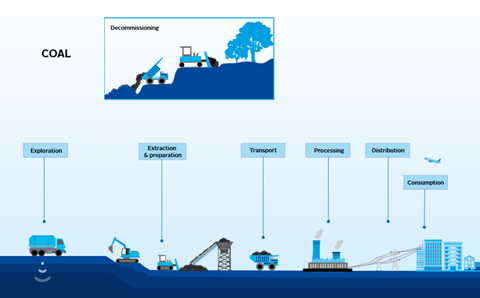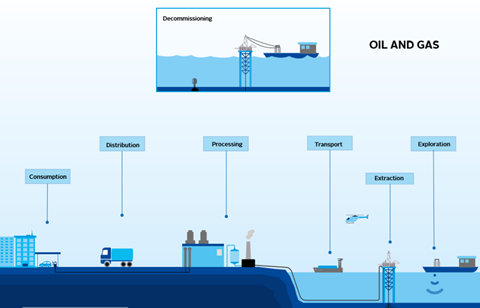There are different impacts on human rights along different phases of the value chain – exploration, operation and production – which are important to take into consideration when engaging.
They also require tailored requests and both qualitative and quantitative human rights indicators to be meaningful. Even companies that have engaged on human rights for a long time, and taken the lead on implementing measures to respect and manage risks, are continuously striving to understand and manage them. Some of the typical human rights issues facing companies in the industry include:
Employee/labour relations
Treatment of workers with respect and dignity, promotion of diversity and gender equality in the workplace including the participation of women, protection of workers against harassment and health and safety risks. Labour risks include hazardous working conditions, health and safety incidents, lack of collective bargaining and freedom of association.
Supplier and business partner engagement
Worker rights such as freedom of association, collective bargaining, forced and compulsory labour, child labour, discrimination in the workplace, working conditions (e.g. health and safety) and impacts on local communities.
Provision of security
Provision of security to protect personnel and assets in a manner that respects human rights of staff and community members. Extractive companies frequently employ private security contractors or engage with state security forces, e.g. police or military forces. Inappropriate conduct of such forces can have adverse human rights impacts on a company’s operations and neighbouring community.

Human trafficking and sexual exploitation
Including the possibility of sex trafficking, can be a risk around mining camps because of the transitory nature of the workforce and isolation of the worksites. An issue having emerged to be material to the mining sector is the rise of HIV/Aids within local communities of operations.
Artisanal and small scale mining
Management of disputes between the operation and artisanal miners.
Community engagement
Impacts on water quality and access, land access, livelihoods, employment, vulnerable groups, and preservation of cultural heritage and religion.
Environmental impacts
These can affect human health and wellbeing. A common human rights issue in the sector concerns access to water and health impacts of local communities.
Indigenous people
Protection of minorities’ rights, right to self-determination and right to a cultural life.
Land issues
Insufficiently negotiated land acquisition and potential displacement of communities and social exclusion of indigenous peoples can lead to human rights violations and community conflict in both the short and long term.
Revenue transparency/conflict
Risk of resource revenues being used to fund conflict and corruption.

Download the full report
-

Digging deeper: human rights and the extractives sector
July 2018
Human rights and the extractives industry
- 1
- 2Currently reading
Human rights issues in the extractives sector
- 3
- 4
- 5
- 6
- 7
- 8
- 9













